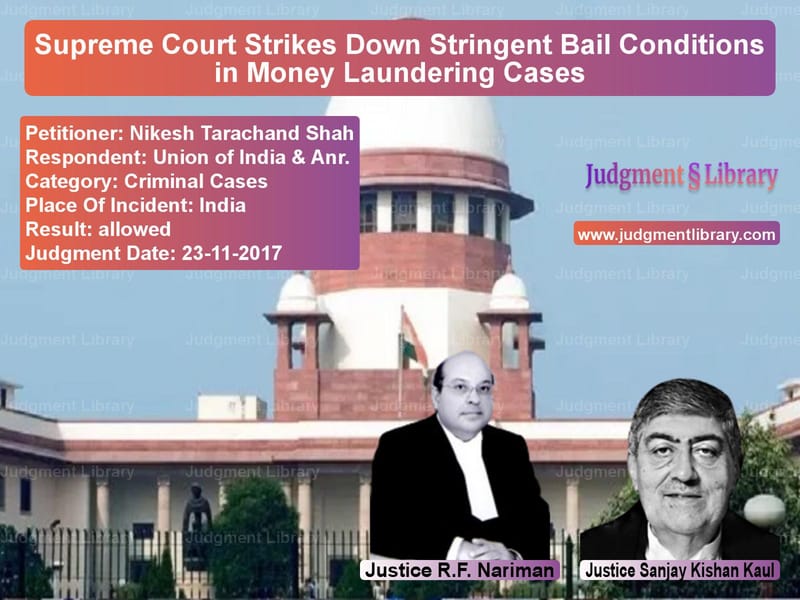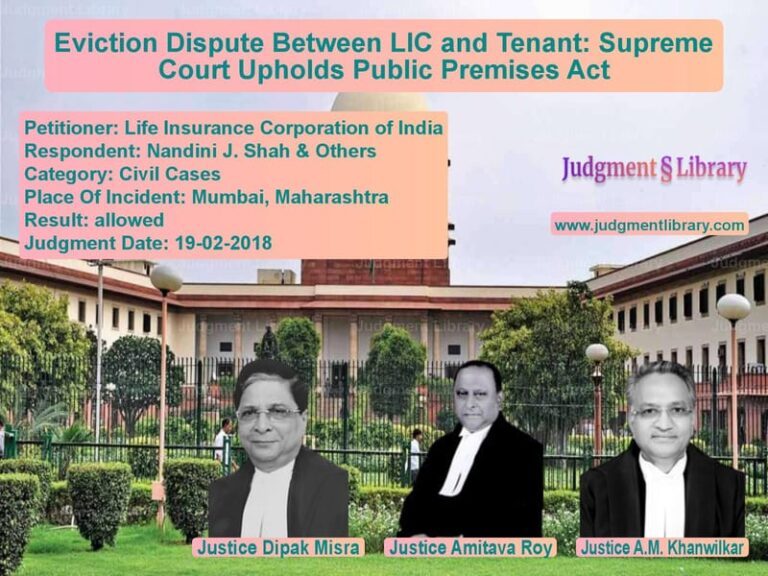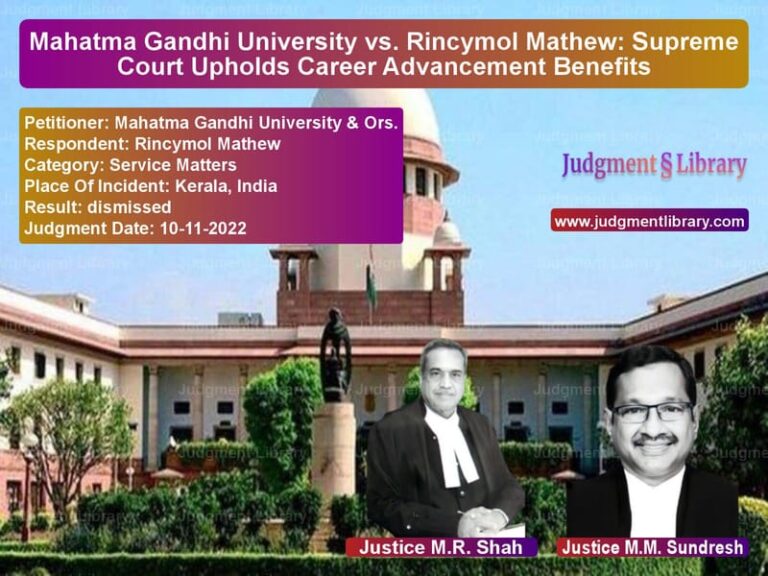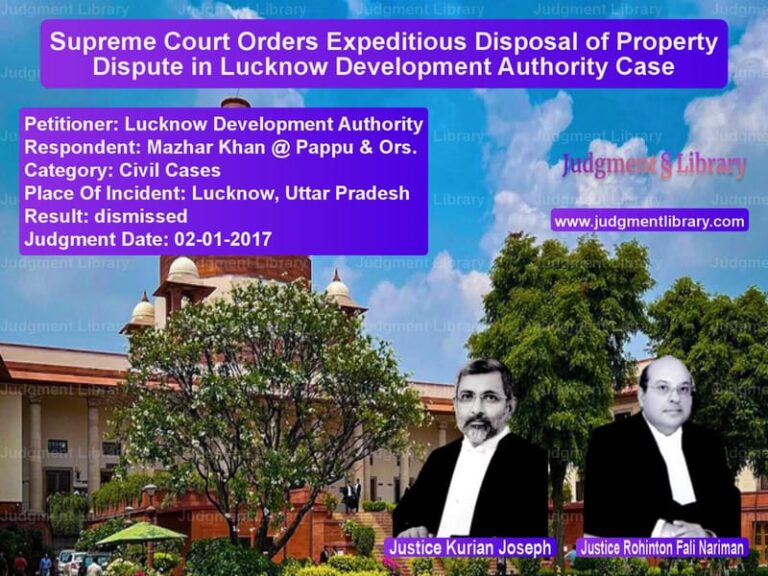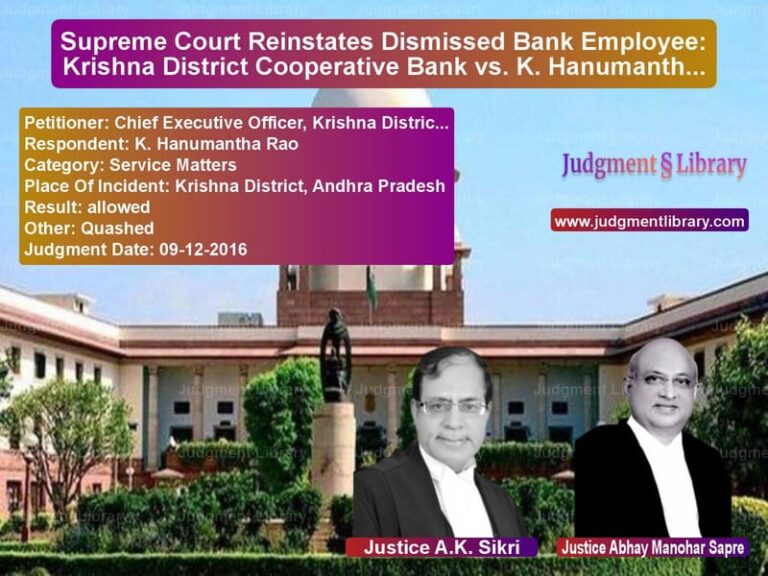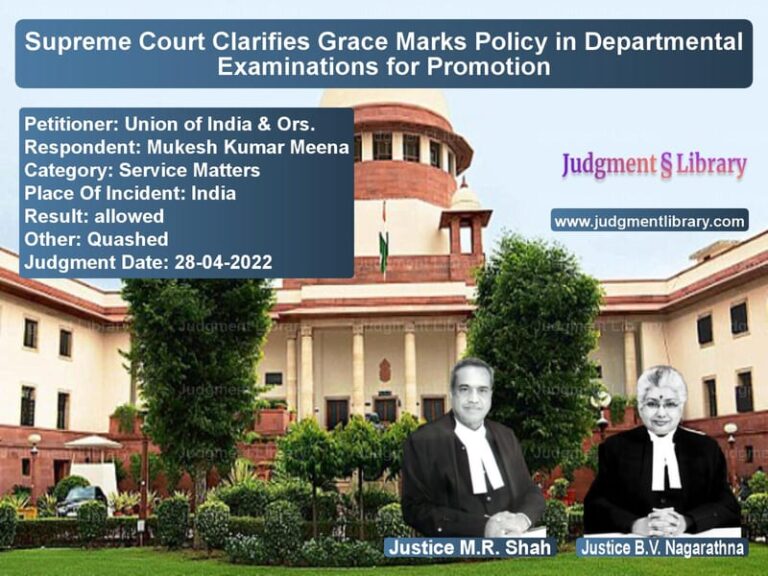Supreme Court Strikes Down Stringent Bail Conditions in Money Laundering Cases
The case of Nikesh Tarachand Shah vs. Union of India & Anr. is a landmark judgment that declared Section 45(1) of the Prevention of Money Laundering Act, 2002 (PMLA) unconstitutional. This decision had a significant impact on the legal landscape, particularly concerning bail provisions for individuals accused of money laundering. The Supreme Court ruled that the twin conditions imposed for granting bail under Section 45 violated fundamental rights under Articles 14 and 21 of the Constitution.
The Prevention of Money Laundering Act was enacted to curb financial crimes and prevent the illegal circulation of money obtained through criminal activities. However, the stringent bail conditions introduced by Section 45(1) of the Act were widely criticized for being arbitrary and unfairly burdening the accused with proving their innocence even at the pre-trial stage.
Background of the Case
The petitioners challenged the constitutional validity of Section 45(1), which imposed two conditions for bail:
- The Public Prosecutor must be given an opportunity to oppose the bail application.
- The court must be satisfied that the accused is not guilty of the offence and is not likely to commit any offence while on bail.
These conditions applied to offences under Part A of the Schedule to the PMLA, where the punishment exceeded three years. The petitioners argued that these conditions were arbitrary and discriminatory.
Petitioner’s Arguments
Senior advocate Mukul Rohatgi, representing the petitioners, put forth the following arguments:
- The twin conditions violated the fundamental right to personal liberty under Article 21 of the Constitution.
- Section 45 created an irrational classification by applying stringent bail conditions to a wide range of offences, regardless of their severity.
- The burden placed on the accused to prove their innocence at the bail stage was contrary to the established principle of presumption of innocence.
- The amendment in 2012, which expanded the list of offences under Part A, made the provision excessively harsh and unreasonable.
- The provision had no rational nexus with the objective of the PMLA, which was to prevent money laundering, not to impose draconian bail conditions.
Respondent’s Arguments
The Union of India, represented by Attorney General K.K. Venugopal, defended the provision, stating:
- Money laundering poses a serious threat to the economy, and stringent bail conditions were necessary to prevent economic offenders from evading justice.
- The conditions under Section 45 ensured that economic offenders do not misuse bail provisions to continue their illegal activities.
- The restrictions were in line with similar provisions in other special legislations dealing with terrorism and drug trafficking.
- The Supreme Court should read down the provision to make it constitutional rather than striking it down entirely.
Supreme Court’s Analysis
Justices R.F. Nariman and Sanjay Kishan Kaul examined the validity of Section 45 under Articles 14 and 21. They noted that:
- Bail conditions should be proportionate to the gravity of the offence.
- Section 45 imposed restrictions that were harsher than those for more serious crimes like murder.
- The classification based on punishment exceeding three years was arbitrary and led to absurd results.
- The provision failed the test of reasonableness and fairness under Article 21.
- The right to bail is a fundamental aspect of personal liberty, and stringent conditions should only be imposed for offences of extreme severity.
Key Observations
The Court made several critical observations:
“The indiscriminate application of the provisions of Section 45 will certainly violate Article 21 of the Constitution. Provisions akin to Section 45 have only been upheld where there is a compelling state interest in tackling crimes of an extremely heinous nature.”
The Court also emphasized that the PMLA applies to a wide range of offences, many of which do not pose a severe threat to public safety. Imposing stringent bail conditions across the board was, therefore, unjustified.
Final Judgment
The Supreme Court ruled:
- Section 45(1) of the PMLA was unconstitutional as it violated Articles 14 and 21.
- All bail applications previously denied under Section 45 should be reconsidered without applying the twin conditions.
- Courts should apply general bail principles under the Code of Criminal Procedure.
- Personal liberty must be protected unless the state has a compelling reason to curtail it.
The judgment serves as a major precedent in upholding the right to bail and ensuring that economic offences are not treated with disproportionate severity. The Court’s decision reaffirmed the principle that laws must be fair, just, and reasonable.
Don’t miss out on the full details! Download the complete judgment in PDF format below and gain valuable insights instantly!
Download Judgment: Nikesh Tarachand Sha vs Union of India & Anr Supreme Court of India Judgment Dated 23-11-2017.pdf
Direct Downlaod Judgment: Direct downlaod this Judgment
See all petitions in Bail and Anticipatory Bail
See all petitions in Money Laundering Cases
See all petitions in Judgment by Rohinton Fali Nariman
See all petitions in Judgment by Sanjay Kishan Kaul
See all petitions in allowed
See all petitions in supreme court of India judgments November 2017
See all petitions in 2017 judgments
See all posts in Criminal Cases Category
See all allowed petitions in Criminal Cases Category
See all Dismissed petitions in Criminal Cases Category
See all partially allowed petitions in Criminal Cases Category

